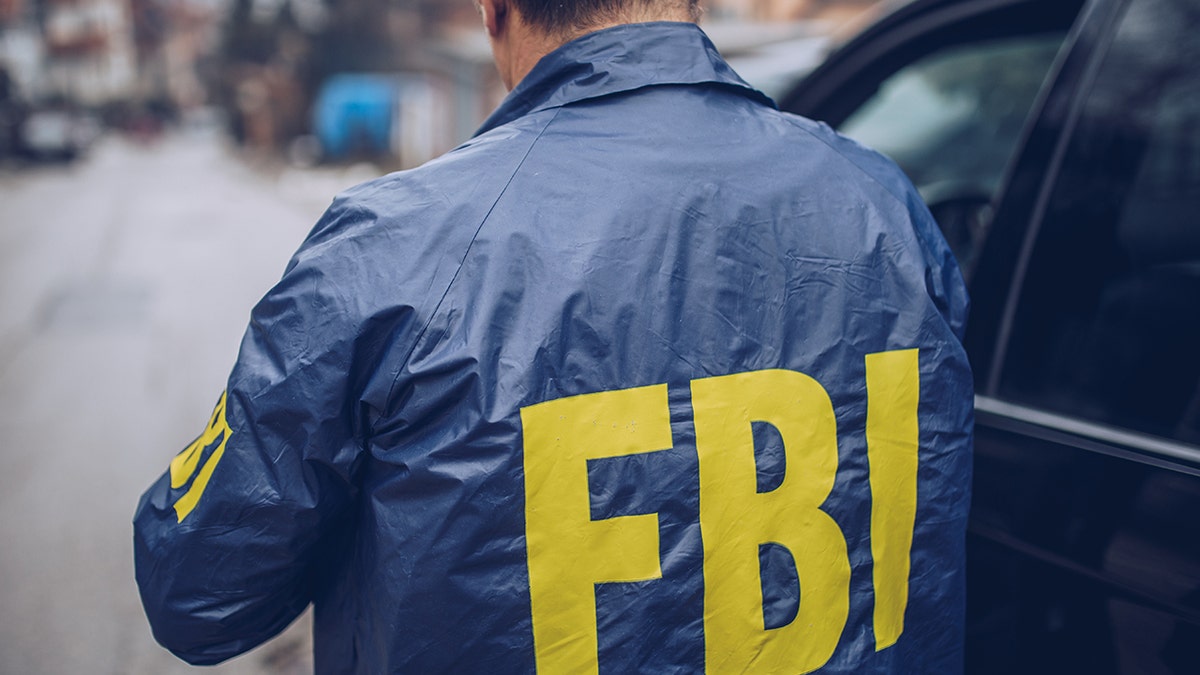Massachusetts
FBI makes massive drug bust in Massachusetts, seize fentanyl-laced, pink heart-shaped candy pills

In what is believed to be one of the largest single-location seizures of drugs in New England, the FBI arrested three Massachusetts men who were allegedly found in possession of over 220 pounds of suspected controlled substances, including pills pressed into the shape of pink candy hearts.
The U.S. Department of Justice said about 10 million doses of drugs were seized, including eight million doses of fentanyl- and methamphetamine-laced pills and powder.
The drugs have an estimated total street value of $8 million.
TEXAS AMATEUR BOMB MAKER SENTENCED TO 14 YEARS FOR WEAPONS VIOLATIONS, CHILD PORNOGRAPHY POSSESSION
The FBI seized over 220 pounds of drugs, including 20 pounds of pink heart-shaped pills appearing like Valentine’s Day candy, laced with fentanyl. (FBI Boston)
The FBI arrested 25-year-old Emilio Garcia, 33-year-old Sebastien Bejin, and 40-year-old Deiby Felix, all three from Lynn, Massachusetts.
Felix, Garcia and Bejin were charged with possession of controlled substances with intent to distribute, while Garcia and Bejin were also charged with conspiracy to distribute controlled substances and possess controlled substances with distribution intent.
“The only thing more depraved than trafficking deadly fentanyl is trafficking deadly fentanyl designed to look like candy to appeal to teenagers,” Attorney General Merrick B. Garland said. “The Justice Department is focused on attacking every link in the global fentanyl trafficking chain, and we will not stop until those responsible for the fentanyl poisoning epidemic are brought to justice.
BORDER PATROL SEIZED ENOUGH FENTANYL TO KILL ENTIRE US POPULATION THIS FISCAL YEAR

The FBI seized over 220 pounds of drugs, including 20 pounds of pink heart-shaped pills appearing like Valentine’s Day candy, laced with fentanyl. (FBI Boston)
The DOJ said in July 2023, an overdose death in Salem, Massachusetts sparked an investigation that led to a drug trafficking operation run by the three men.
After watching the men for three months, investigators executed search warrants on Nov. 1 at four locations, all in Lynn, as well as arrest warrants for the arrests of Garcia, Bejin and Felix.
During the searches, investigators allegedly discovered what the DOJ said investigators believe is one of the largest single-location seizures of fentanyl in methamphetamine in Massachusetts and the region.
NEARLY 40 LBS OF FENTANYL FOUND BLOCKS AWAY FROM NYC DAY CARE WHERE INFANT DIED

The FBI seized over 220 pounds of drugs, including 20 pounds of pink heart-shaped pills appearing like Valentine’s Day candy, laced with fentanyl. (FBI Boston)
The search allegedly resulted in over 200 pounds of drugs getting seized, including 20 pounds of heart-shaped fentanyl-laced pills pressed to appear like pink Valentine’s Day candy.
About 180 pounds of the drugs seized were supposedly found in the basement of a two-family residential home occupied by multiple families and small children.
The DOJ claims the drugs included 22 pounds of methamphetamine and cocaine base; 37 pounds of suspected raw methamphetamine equaling about 3.5 million doses; 61 pounds of, or 280,000, Percocet pills believed to contain fentanyl; 59 pounds of Adderall pills believed to contain methamphetamine; and four pounds of brown rock and powder-like substances that tested positive for methamphetamine, fentanyl and cocaine, equaling about 900,000 doses.
NYC POLICE RELEASE PHOTOS OF DRUGS FOUND STASHED IN DAY CARE WHERE 1-YEAR-OLD DIED FROM FENTANYL EXPOSURE

FBI agent in a jacket brandishing the bureau’s insignia. (iStock)
Investigators also claimed to have found additional narcotics and five firearms during the searches.
Investigators learned during the surveillance that Garcia and Bejin would go to one stash location daily and allegedly deliver drugs from the stash location to lower-level dealers.
The DOJ said one of the stash locations was where Felix allegedly lived, and a search of the premises found nearly 7 pounds of pressed pills containing methamphetamine and fentanyl, consistent with the pressed pills found at another stash location.
CLICK HERE TO GET THE FOX NEWS APP
“This seizure by the FBI’s North Shore Gang Task Force saved lives in communities throughout Massachusetts,” FBI Director Christopher Wray said. “Not only was this seizure one of the largest in the history of Massachusetts, but some of the pills were created to look like candy, potentially presenting an enormous risk to children.
All three men are expected to appear in U.S. District Court on Nov. 13, 2023.

Massachusetts
Massachusetts court weighs whether all prostitution is sex trafficking

“So every John is a sex trafficker?” asked Massachusetts Supreme Judicial Court Scott L. Kafker in the courtroom last week.
“Yes, your honor,” replied Plymouth County Assistant District Attorney Julianne Campbell.
The case—Commonwealth v. Garafalo—represents the latest assault on civil liberties and basic language to be carried out in the name of stopping sex trafficking.
You are reading Sex & Tech, the newsletter from Elizabeth Nolan Brown on sex, technology, bodily autonomy, law, and online culture. Want more on sex, technology, and the law? Subscribe to Sex & Tech. It’s free and you can unsubscribe any time.
Victimizing ‘A Fictitious Individual Created by Law Enforcement’
It’s long been a goal of certain radical feminists to define all sex work as sex trafficking. If you completely remove agency and free will from the equation—at least for women—then anyone who accepts money for sexual activity can be a victim and anyone who makes or facilitates this payment a criminal.
This paradigm is the basis for the “Nordic Model” of regulating prostitution, in which paying for sex is illegal but the basic act of offering sex for money is not. The Nordic model is established in many European countries, was adopted last year in Maine, and is gaining ground in the U.S. (where it’s sometimes, confusingly, called the Equality Model).
In keeping with this paternalistic mindset, some places have also started to raise penalties for prostitution customers, even elevating solicitation from a misdemeanor to a felony. Meanwhile, at the federal level, trying to pay for sex with someone under age 18 counts as sex trafficking even when the solicitor does not know the minor’s actual age.
Massachusetts may take these ideas one step further and declare anyone who tries to pay for sex at all to be a sex trafficker, thereby defining all prostitution, even between consenting adults, to be a form of sex trafficking.
A case that came before the Massachusetts Supreme Judicial Court (SJC) last week involves a prostitution sting conducted by Massachusetts state cops in 2021. The officers, posing as adult sex workers, posted ads online and arrested people who responded to the ads and attempted to meet up for paid sexual activity.
Regrettably, this type of sting is incredibly common in the U.S. It typically results in solicitation charges—still a misdemeanor in most places—for those ensnared. But in this case the state indicted those who responded to the sham ads on sex trafficking charges.
Massachusetts law says that anyone who “subjects, or attempts to subject, or recruits, entices, harbors, transports, provides or obtains by any means, or attempts to recruit, entice, harbor, transport, provide or obtain by any means, another person to engage in commercial sexual activity, a sexually-explicit performance or the production of unlawful pornography” is guilty of trafficking of persons for sexual servitude—a.k.a. sex trafficking. The crime is a felony, punishable by at least 5 years in prison (without eligibility for probation, parole, or work release) and a possible 20 years, plus a potential fine of up to $25,000.
The five defendants in Garafalo, arrested in the 2021 sting and charged with trafficking of persons for sexual servitude, pushed back against the charges, filing a motion to dismiss them in 2022.
State Judge Maynard Kirpalani agreed to dismiss the charges. “The grand jury heard no evidence that there were any actual victims in the cases involving any of the Defendants, as the woman in the advertisements was a fictitious individual created by law enforcement, and there was no money and/or sexual services exchanged,” wrote Kirpalani. “Consequently, there was no evidence that any of the Defendants knowingly enabled or caused, or attempted to enable or cause, another person to engage in commercial sexual activity.”
‘We’re Going To Take Tvery Single John…and Put Them in Prison for Five Years?’
The state appealed, but the Appeals Court judge also sided with the defendants. So the state appealed again.
The Massachusetts high court heard oral arguments for the case on January 6.
Massachusetts’ position is that the state’s sexual servitude statute clearly captures paying for sex among its prohibited activities. It comes down to the word “obtain,” the state argued.
But at the same time the state legislature enacted a sex trafficking statute in 2011, it also raised the penalty for “soliciting a prostitute,” making this misdemeanor crime punishable by “a fine of not less than $1,000 and not more than $5,000” and up to two and a half years in jail.
“We’re going to take every single John, charge them with sex trafficking, and put them in prison for five years? I don’t think that was the intent,” defense attorney Patrick Noonan told Massachusetts Supreme Judicial Court justices last week. It would make the misdemeanor offense completely redundant.
It’s unclear when a decision will be issued, but “SJC cases are typically decided within 130 days,” the Boston Globe reports.
The Dangers of Exploitation Creep
This is an important case to watch for folks concerned with the inflation of human trafficking and sex trafficking—concepts that have undergone a massive case of what sometimes called “exploitation creep.” In recent decades, we’ve seen a series of attempts to expand the parameters of these crimes from truly heinous and coercive acts to much less serious offenses.
In many cases, this has involved roping in third parties—drivers, websites, hotels, social media platforms, sales software companies, etc—into liability for coercive or violent acts that did take place but of which they had only the most tangential and unwitting involvement. Another element of this impulse involves defining consenting adult sex workers as prima facie victims and anyone who pays them as a victimizer or trafficker.
If Massachusetts’ high court justices side with the state, it obviously won’t bind other states to similar interpretations of their own sex trafficking statutes. But plenty of police agencies and prosecutors across the country already refer to plain old prostitution stings as “sex trafficking operations” and the arrest of potential prostitution customers as a “human trafficking bust,” even when the only charges brought are misdemeanor solicitation charges. The authorities in many states would clearly welcome the opportunity to include attempting to pay for sex under the official rubric of sex trafficking.
If Massachusetts’ top court greenlights the state’s attempt to charge sex-work customers as sex traffickers, you can bet it will encourage authorities in other states to play faster and looser with their own definitions. If the court sides with the state here, I think we’ll be looking at a major escalation of an already dangerous trend.
Labeling people who want to pay a willing adult for sex as sex traffickers is certainly unfair to those people, and not just because they can be imprisoned for so much longer. It’s one thing to have a misdemeanor arrest on your record or to have to disclose a solicitation conviction; it’s quite another to have a felony record and have to tell people you’re a convicted sex trafficker.
And the negative consequences of this shift don’t stop with those convicted. Defining all prostitution as sex trafficking threatens to drive the industry further underground and to make customers less likely to engage in screening protocols and other safety measures, making the work more dangerous for adult sex workers and for adult and minor victims of sexual exploitation alike.
It also takes resources away from fighting crimes where there are actual victims, instead encouraging cops and prosecutors to conduct sure-thing stings where the only “victim” is an undercover cop.
And it does all this while letting authorities ratchet up sex trafficking arrest and conviction numbers, confusing the issue by conflating two very different things in public data. This spike in arrests and convictions can then be used to stoke public fear and build demand for more action. It’s can be used to justify raising police budgets, expanding surveillance power, suppressing online speech, and generally calling for more tough-on-crime policies. It can also be used to call for new regulations on businesses as diverse as massage parlors, hotels, and social media platforms.
Policies like these affect people far beyond sex workers and their clients, and they do nothing to help actual victims of sexual violence, coercion, and abuse. Let’s hope Massachusetts justices see the state’s ploy for what it is and make the right call here.
More Sex & Tech News
Things aren’t looking good for TikTok after a U.S. Supreme Court hearing last week considering a law that would force the platform’s parent company, ByteDance, to sell off its U.S. operations or be banned. Reason‘s Robby Soave has written a rundown of what transpired in court. “The Supreme Court appeared largely—though not entirely—unmoved by arguments that a federal ban on TikTok would violate the First Amendment rights of the app’s millions of American users,” writes Soave:
During oral arguments before the Court on Friday, the justices seemed inclined to agree with the federal government that a national security rationale was sufficient to force the app’s Chinese parent company, ByteDance, to sell to an American company…. President-elect Donald Trump opposes the ban and petitioned the Court to delay it until he takes office so that an alternative can be worked out. Shark Tank investor Kevin O’Leary and billionaire Frank McCourt have offered to buy the app for $20 billion, but ByteDance has insisted that it would sooner comply with the ban than sell the company. Supporters of the ban tend to see this as evidence that the Chinese government deems TikTok too useful for its nefarious propagandistic purposes.
Of course, even if it were true that the app is rife with Chinese propaganda, Americans enjoy the First Amendment right to consume such content. The justices seemed most skeptical of the government’s case to the extent it hinged on this point. Justice Elena Kagan likened the banning of TikTok to the Red Scare, in which the federal government violated the free speech rights of American communists due to their affiliation with the Soviet Union.
“That’s exactly what they thought about Communist Party speech in the 1950s, which was being scripted in large part by international organizations or directly by the Soviet Union,” said Kagan.
Several justices also seemed disturbed by the secretive nature of the government’s case against TikTok. National security experts have posited that TikTok poses a fundamental risk, but the evidence they showed to lawmakers has not been released to the public. Justice Gorsuch objected to “the government’s attempt to lodge secret evidence in this case without providing any mechanism for opposing counsel to review it.”
If it was just a matter of TikTok itself being banned, the justices would probably deem this an impermissible, content-based suppression of speech. Unfortunately, most of the Court seemed sufficiently persuaded that forcing ByteDance—a foreign company that does not itself enjoy First Amendment rights—to sell the app was not necessarily a content-based restriction on speech.
What is Tubi? You might find Tubi tucked away among the apps preloaded on your Smart TV. The free, ad-supported streaming service owned by Fox fields “the kind of movies you might have once found mindlessly flipping through the channels, back before streaming came along and algorithms began crafting our entertainment diets,” writes The Washington Post‘s Travis M. Andrews:
Tubi isn’t only filled with so-bad-they’re-good movies. It’s got a bit of everything. A Criterion movie here. A strange Rob Lowe-hosted game show there. “Bad Boys,” “Dances With Wolves” and every episode of “Columbo” and “The Magic School Bus” are neighbors on the streaming service. It’s like a T.J. Maxx or a Marshall’s: an awful lot of bargain-bin fare, not particularly organized—currently, you’ll find “Despicable Me 3” but not its predecessors—but also packed with diamonds in the rough if you’re willing to spend time sorting through the riffraff.
Today’s Image
Massachusetts
Person sledding injured in collision with tree in Sherborn

One person was injured while sledding with their family in Sherborn, Massachusetts, on Sunday.
Sherborn Fire and Rescue says they were called to Pine Hill off of Pine Hill Lane for a technical rescue after an adult struck a tree while sledding.
Firefighters were able to rig a hoist system to safely lower the patient down the hill to the field where their UTV was waiting to take them to an ambulance.
The injured person was transported to a local hospital for treatment. There was no immediate update on the extent of their injuries.
Further details were not provided.
Massachusetts
New Hampshire man plays Mass. lottery, wins $25,000 a year for life prize

A New Hampshire man who played the lottery in Massachusetts won $25,000 a year for life.
Joseph DeFeudis, of Pelham, N.H. won $25,000 a year for life during a “Lucky for Life” drawing held on Nov. 16, 2024. The first five numbers on DeFeudis’ ticket matched the drawn numbers.
He bought his winning ticket Ted’s Stateline Mobil at 551 Broadway in Methuen.
DeFeudis claimed his prize on Jan. 2, and chose the cash option to receive a one-time payment of $390,000 before taxes.
The New Hampshire man told the Massachusetts State Lottery officials he plans on retiring with his prize.
-

 Politics1 week ago
Politics1 week agoWho Are the Recipients of the Presidential Medal of Freedom?
-

 Health1 week ago
Health1 week agoOzempic ‘microdosing’ is the new weight-loss trend: Should you try it?
-
/cdn.vox-cdn.com/uploads/chorus_asset/file/25822586/STK169_ZUCKERBERG_MAGA_STKS491_CVIRGINIA_A.jpg)
/cdn.vox-cdn.com/uploads/chorus_asset/file/25822586/STK169_ZUCKERBERG_MAGA_STKS491_CVIRGINIA_A.jpg) Technology4 days ago
Technology4 days agoMeta is highlighting a splintering global approach to online speech
-

 News1 week ago
News1 week agoSeeking to heal the country, Jimmy Carter pardoned men who evaded the Vietnam War draft
-

 Science2 days ago
Science2 days agoMetro will offer free rides in L.A. through Sunday due to fires
-

 News1 week ago
News1 week agoTrump Has Reeled in More Than $200 Million Since Election Day
-

 Movie Reviews6 days ago
Movie Reviews6 days ago‘How to Make Millions Before Grandma Dies’ Review: Thai Oscar Entry Is a Disarmingly Sentimental Tear-Jerker
-
/cdn.vox-cdn.com/uploads/chorus_asset/file/25821992/videoframe_720397.png)
/cdn.vox-cdn.com/uploads/chorus_asset/file/25821992/videoframe_720397.png) Technology6 days ago
Technology6 days agoLas Vegas police release ChatGPT logs from the suspect in the Cybertruck explosion















